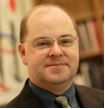United States Supreme Court Cites the Marquette Intellectual Property Law Review
Law professors, like everyone else, have good days and less good days. Then, sometimes, law professors have special days. In these days, something truly unique happens, something that makes law professors especially grateful for their roles as mentors and educators. This past week, I had probably one of the most special days in my law professor career, and it was not about getting tenure, getting promoted or the like (all very special days I can promise!). It was about the success of a student I had the privilege to mentor and supervise, who was one of my very best students, and who made me so very proud. So what happened? An academic dream: the Supreme Court of the United States cited the comment that my former student Lina Monten wrote in 2005, and that we published in the Marquette Intellectual Property Review.
Here is a little more “technical” background. The Supreme Court recently issued its opinion in Kirtsaeng v. John Wiley & Sons, a closely-watched copyright case concerning the issue of whether the “first sale” doctrine of copyright law applies to imported works. Justice Breyer wrote the majority opinion holding that it does, and Justice Ginsburg wrote a dissent (on behalf of herself and Justices Scalia and Kennedy) arguing that it does not. In the course of her dissent, Justice Ginsburg argued that the United States has long taken the position in international negotiations that copyright owners should have the right to prevent importation of copies of their works that they manufactured and sold in another country. (Slip op. at 20-21.) In support of her argument, Justice Ginsburg cited two items, one of which was the comment published in the Marquette Intellectual Property Law Review, written by then-student, now-Marquette Lawyer Lina M. Montén, entitled The Inconsistency Between Section 301 and TRIPS: Counterproductive With Respect to the Future of International Protection of Intellectual Property Rights? (9 Marq. Intellectual Property L. Rev. 387 (2005)). I supervised the comments, which started as a paper that Lina wrote for the International Business Transaction class that I taught during spring 2005.

